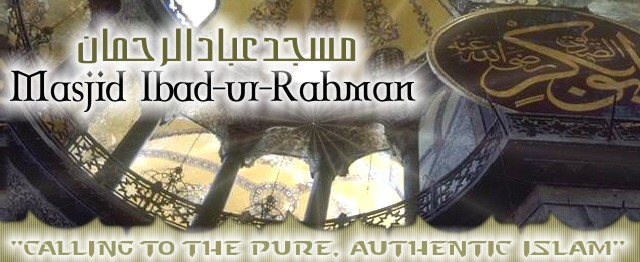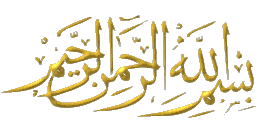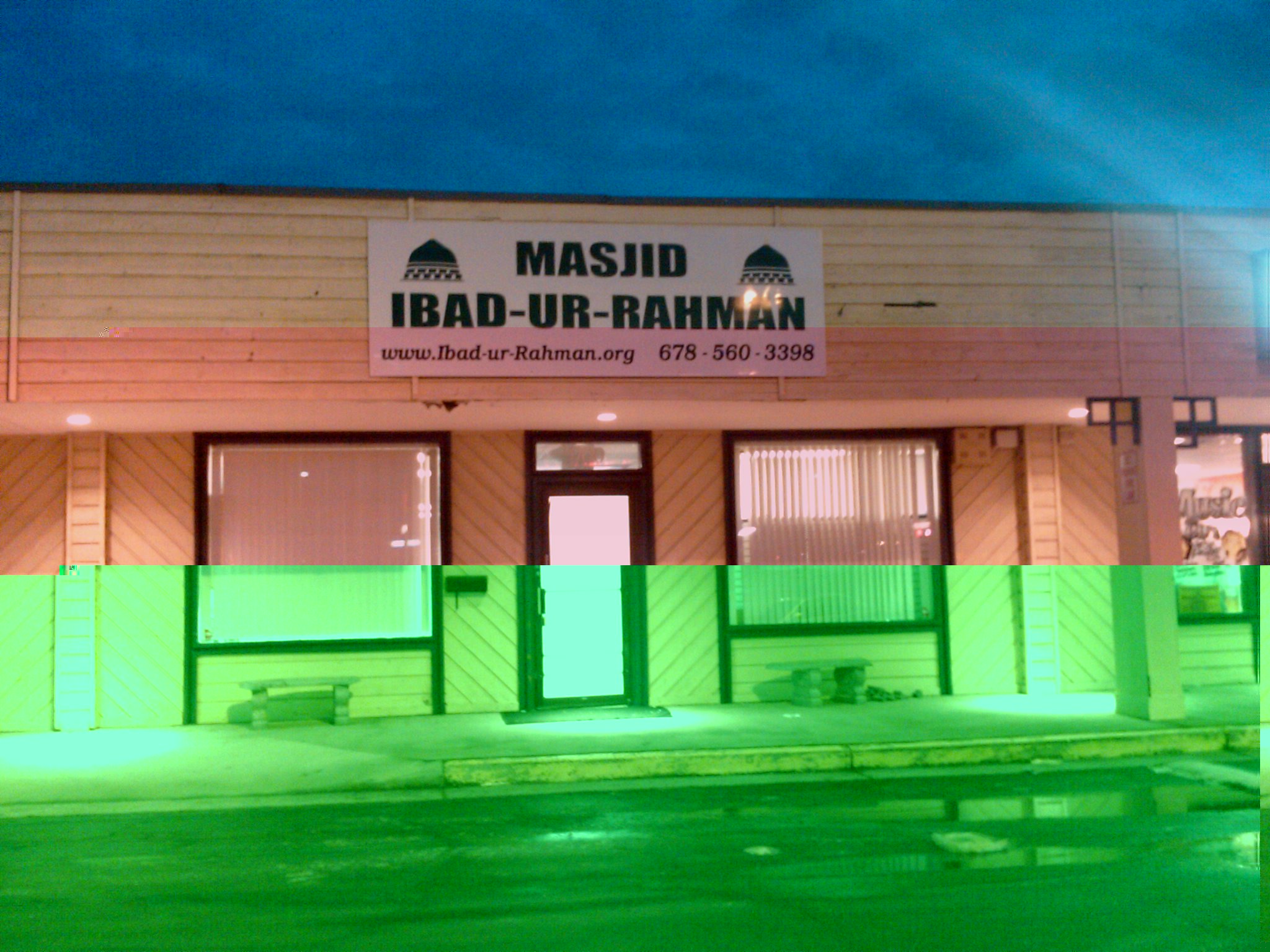
Assalamu Alaikum !!
Welcome to
Ibad-ur-Rahman.org

Home |
Recommended Books | Biographies
| Jewels of Guidance

Photo Gallery
Kids Corner
Our Creed and Call
[1]: We believe in Allaah and His Names and Attributes, as they were mentioned in the Book of Allaah and in the Sunnah of the Messenger of Allaah, without tahreef (distortion), nor ta'weel (figurative interpretation), nor tamtheel (making a likeness), nor tashbeeh (resemblance), nor ta'teel (denial).
[2]: We believe that calling upon the dead and seeking aid from them, and similarly with the living, in that which no one besides Allaah is capable of, is Shirk with Allaah. Likewise, believing that charms and amulets can bring about benefit along with Allaah, or without Allaah is Shirk, and carrying them without that belief is superstition.
[3]: We take the Book and the Sunnah upon their apparent meanings, and we do not perform ta'weel, except through a proof that necessitates ta'weel (figurative interpretation) of the Book and the Sunnah.
[4]: We love the Companions of the Messenger of Allaah, and we hate those who speak against them. We believe that to speak ill of them is to speak ill of the Religion, because they are the ones who conveyed it to us. And we love the Family of the Prophet with love that is permitted by the Sharee'ah.
[5]: We love the People of Hadeeth and all of the Salaf of the Ummah from Ahlus-Sunnah.
[6]: We despise 'ilmul-kalaam (knowledge of theological rhetoric), and we view it to be from amongst the greatest reasons for the division in the Ummah.
[8]: We do not perform takfeer upon any Muslim due to any sin, except Shirk with Allaah, or the abandonment of Prayer, or apostasy. We seek refuge in Allaah from that.
[9]: We believe that the Qur'aan is the Speech of Allaah, it is not created.
[10]: We hold co-operation with any Muslim upon the truth to be obligatory and we declare ourselves free in front of Allaah from the calls of Jaahiliyyah (pre-Islaamic times of ignorance).
[11]: We do not deem it correct to revolt against the Muslim rulers as long as they are Muslims, nor do we feel that revolutions bring about reconciliation. Rather, they corrupt the community.
[12]: We hold that this multiplicity of present day parties is a reason for the division of the Muslims and their weakness.
[13]: We restrict our understanding of the Book of Allaah and of the Sunnah of the Messenger of Allaah to the understanding of the Salaf of the Ummah from the Scholars of hadeeth, not the blind followers of their individuals. Rather, we take the truth from wherever it comes. And we know that there are those who claim Salafiyyah, yet Salafiyyah is free from them, since they bring to the society what Allaah has prohibited.
[14]: We believe that politics is a part of the Religion, and those who try to separate the Religion from politics are only attempting to destroy the Religion and to spread chaos.
[15]: We believe there will be no honor or victory for the Muslims until they return to the Book of Allaah and to the Sunnah of the Messenger of Allaah .
[16]: We oppose those who divide the Religion of trivialities and important issues. And we know that this is a destructive da'wah.
[17]: We oppose those who put down the knowledge of the Sunnah, and say that this is not the time for it. Likewise, we oppose those who put down acting upon the Sunnah of the Messenger of Allaah .
[18]: Our da'wah and our 'aqeedah is more beloved to us than our own selves, our wealth and our offspring. So we are not prepared to part with it for gold, nor silver. We say this so that no one may have hope in buying out our da'wah, nor should he think that it is possible for him to purchase it from us for deenaar or dirham.
[19]: We love the present day Scholars of the Sunnah and hope to benefit from them and regret the passing away of many of them.
[20]: These are glimpses into our 'aqeedah and our da'wah.
So let it be known that this has not fully covered our da'wah and our 'aqeedah, since our da'wah is from the Book and the Sunnah, to the Book and the Sunnah, and our 'aqeedah is likewise. And Allaah is sufficient for us, and He is the best of those who are trusted. And there is no might, nor power, except with Allaah.
The majority of this text is a summarisation of what is found in "Tarjumah Abee ’Abdur-Rahmaan Muqbil Ibn Haadee al-Waadi’ee" (p. 135-142) of Shaykh Muqbil Ibn Haadee.
Spanish | Arabic | Urdu | Islaamic Web Links | Hifth Qur'aan Program | Contact Us
Copyright 2009 Ibad-ur-rahman.org
Site created by Affiliate Concept Technologies, LLC